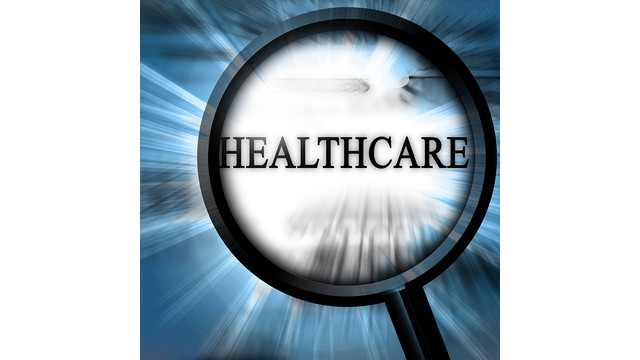With the COVID-19 pandemic continuing to play out across the country, there is an added importance this open enrollment season for Americans to be mindful as they pick their health insurance and other employee benefits for 2021. The AICPA’s 360 Degrees of Financial Literacy program is urging Americans to take time to carefully review their family’s financial situation and pick out the best benefit plan options for their household.
To help guide Americans, here are a few do’s & don’ts they should pay close attention to:
DO – Review Retirement Saving Options
The Covid-19 pandemic has many Americans spending money differently than they were last year. Money that may have previously been spent on transportation can now be allocated elsewhere. If you find yourself working from home, any pre-tax dollars put towards commuter benefits may be better used bolstering an emergency fund or retirement savings.” – Kim Hardy, CPA/CFF, member of the AICPA Financial Literacy Commission
“Open enrollment is good opportunity to do an overall financial wellness check. In addition to reviewing whether your benefit selections meet your financial goals and needs, consider the synergy that can come with your selections, such as using a Health Savings Account (HSA) that, when paired with your employer-based retirement plan, can be a great way to help you reach your financial goals.” Dr. Tim Todd, CPA, member of the AICPA Financial Literacy Commission
DON’T – ‘Set It and Forget It’ “Benefits that you once used may no longer be of value. For many, it is tempting to just go with what you did last year. However, your plans for the year ahead may look different from the prior year. You may be planning to start a family, may need surgery or may be planning for some other life event, so it will be important to assess the best financial options for the coming year. People can miss out on the full financial upside of their workplace benefits if they don’t revisit their decisions annually.” – Tami Bolder, CPA/ABV, member of the AICPA Financial Literacy Commission
According to AICPA research, nearly 9 in 10 employed adults are confident they understood all the benefits available to them when they accepted their current job. However, only 3 in 10 Americans are very confident that they are using their benefits to their fullest potential.
“When it comes to workplace benefits, the famous infomercial tagline of ‘set it and forget it’ does not apply. It may work for your rotisserie chicken, but it could have drastic effects on your long-term finances. Instead, take this time to revisit past decisions, update your choices based on current circumstances, and learn about changes in offerings to help determine the overall impact on your personal budget. If you are thinking about learning a new skill, open enrollment is a great time to check into tuition reimbursement or any other additional learning opportunities that your employer may offer while benefits are top of mind.” – David Almonte, CPA, member of the AICPA Financial Literacy Commission
DO – Evaluate Healthcare Options & Make Sure You’re Getting the Best Deal
There are a few questions Americans should ask themselves every year to be sure that they are making the best choices for themselves and their family for the year ahead:
- Have there been changes to your personal situation, such as the birth of a child, that might make another health insurance choice more beneficial?
- Are there any planned expenses in the year ahead that might make it more adventitious to consider adding a different type of plan?
- Were there expenses this past year that your current plan didn’t adequately cover?
- Did your employer make changes to your current healthcare benefits plan?
If the answer to any of these questions is ‘yes’ or you’re not sure— now is the perfect time to reevaluate your plan choices to set your finances up for your best 2021.
“Open enrollment is a time to think about how your healthcare plan is going to fit into your financial plan for the year ahead. Perhaps you have upcoming expenses that could be better covered by a different healthcare plan. For instance, with many schools being remote, families are finding themselves in need of in-home childcare. If your employer offers a dependent care FSA (flexible spending account), consider what utilizing this pre-tax benefit might do for your finances. When utilized as part of a plan to pay for eligible care services, an FSA can be a useful way to save money while taking care of your loved ones so that you can continue to work.” – Jina Etienne, CPA, member of the AICPA Financial Literacy Commission
DON’T – Miss Your Open Enrollment Deadline If you miss the open enrollment period, you won’t be able to enroll in a different plan from your current one unless you have a qualifying event (such as getting married, having a baby, or losing employer-sponsored coverage). So, if you find yourself surprised by a premium increase come January, you won’t be able to change coverage.
Important Dates:
- Most employers schedule open enrollment to end a few weeks before forms must be submitted to benefit providers. For calendar-year benefit plans starting January 1st, open enrollment often takes place in November. To be certain when the open enrollment period at your workplace takes place, contact your human resources representative.
- Open enrollment for federal healthcare begins November 1st in most states and runs to December 15th, 2020.
- Open enrollment for Medicare began on October 15th and will conclude on December 7th, 2020.
For an even more in-depth look at employee benefits, the AICPA’s Employee Benefits Report provides additional research as well as tips and guidance from CPAs to help make sense of the important, and sometimes hard to understand, benefit issues.
Thanks for reading CPA Practice Advisor!
Subscribe Already registered? Log In
Need more information? Read the FAQs
Tags: Benefits




